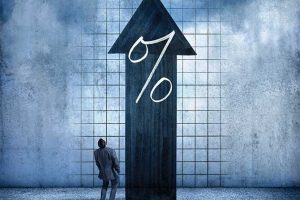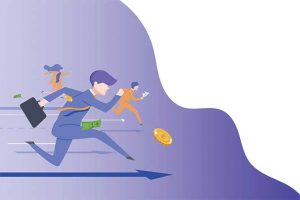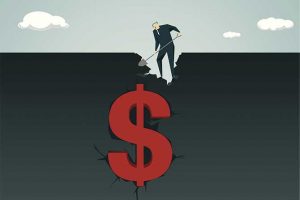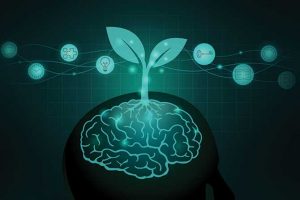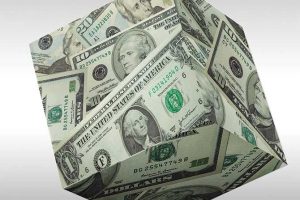By Mark Anderson, Legal and Legislative Assistant, New Mexico Bankers Association
For the vast majority of Americans, particularly those under 50, their relation to the Great Depression has primarily been through hearing their grandparents mention it at family gatherings or learning about it in history classes. Sure, there have been moments of overarching economic peril in the past several decades, but nothing compares to the mass suffering and economic despair that occurred during the Great Depression. Some Americans who have achieved a high level of economic prosperity have largely written off individuals’ economic failings as personal failings, the inability of those individuals to rise to the occasion in the American economy. Part of that is based upon a genuine belief that our system consistently rewards the most exceptional, hardest-working people. Some of that is a way to rationalize a system that often punishes people with brutal economic conditions through no fault of their own.
But, as 2020 comes to an end, it is clear that the United States’ economic system has failed during the COVID-19 crisis, and words like “Great Depression” are now being regularly brought up in conversation, not in a historical context but in a very immediate sense. According to a recent study by Columbia University, the number of Americans living in poverty has grown by 8 million since just May. According to the U.S. Department of Health and Human Services, living below the poverty line means a family of four earns $26,000 or less. There are now 55 million Americans living in poverty, with the 8 million added since May. The reason for the rapid expansion in poverty can be directly traced to diminishing federal stimulus in the latter summer months. The CARES Act, passed early in the pandemic, provided a one-time $1,200 stimulus payment and expanded unemployment insurance to temporarily offset rapidly growing poverty rates. But the benefits of the CARES Act have since dried up, leaving large swaths of Americans left to fend with no safety net.
At the beginning of the COVID-19 crisis, it seemed as if the American public was faced with a binary choice: save the economy or maintain the public health? However, it was more than possible to save the economy and maintain the public health, as countries like Germany and France have demonstrated through comprehensive government aid. But, in the confusion over how to approach COVID-19, the U.S. managed to allow both the economy and the public health to implode. There have been continual mixed messages about the seriousness of the virus and the viability of re-opening schools and the economy. In attempting to find ways to reopen the economy, many public officials have completely skipped the step of controlling the virus, therefore rendering any possibility of long-term economic improvement impossible. As long as the virus is around, it will be impossible for the economy to reach anything resembling pre-COVID levels absent extensive aid from the federal government. And, with the federal government sitting on its hands unwilling to pass further economic assistance, it seems inevitable that economic suffering will persist and only increase.
The real question is, how did we get here, aside from the unexpected occurrence of the pandemic? Only a year ago, many public officials, economic pundits and those at the top of the economic ladder were touting an economy brimming with explosive growth, unemployment that continued to nosedive, and a stock market that was soaring at unprecedented levels. If the economy were this record-setting, world-beating juggernaut, surely it wouldn’t collapse within months in the face of a pandemic, right? Sure, there would be hiccups, but a complete collapse? The answer is that the economy was never particularly strong in the first place and could only project strength if examined from a completely myopic, slanted viewpoint.
Several factors distinguish the American economy in the 21st century: massive income and wealth inequality, colossal debt and lack of savings, wage stagnation and lack of worker protections. These were enormous problems before the pandemic and have only been exacerbated in the past 6-8 months. However, Americans were being fed a steady stream of propaganda that the economy was incredibly vital and only becoming stronger. The reason for this is quite simple. Media narratives, in the mainstream, are crafted by massive corporations who are benefiting from our current economic system, so there is absolutely no incentive on their end to report on any of the structural problems in our economy. Many Americans then take the view of, “Well, I might be struggling, but things will get better. Just look at how great the economy is.” Unwittingly, due to misinformation, many Americans are unable to identify some of the structural problems inherent in our economic system and thus chalk up certain economic struggles solely to personal failings instead of deeper systemic issues. Obviously, we all have a degree of culpability in our own struggles, but there can also be systemic issues at play that should be acknowledged.
The most frustrating aspect of America’s current economic plight is that, with our vast wealth and resources, we are capable of putting together a forward-thinking, vibrant economy that could be the gold standard. But we currently lack the will both in Congress and within the general population to fight for changes that are necessary and wildly overdue. An issue that is unique to America in both its scope and depth is student loan debt, which keeps many younger citizens from participating in the economy. According to a CNBC article, less than 11% of federal student loan debt borrowers are repaying their loans during the pandemic. A temporary coronavirus forbearance on student loans has allowed many debt-holders to experience a temporary respite from the burden. According to the article, “Student loans have long outpaced credit card and auto debt as a burden to Americans and each year 70% of college graduates start their lives in the red. The average balance is around $30,000, up from $10,000 in the early 1990s, but many borrowers owe $100,000 or more. The typical monthly payment is $400.”
In recent years, student debt has ballooned and wages have remained stagnant, furthering its holders’ burden. Many young Americans have reported feeling far more positive without having the responsibility of continually paying off debt. The larger point is that having millions of young Americans burdened with tens of thousands of dollars in debt isn’t good for anyone in an already unstable economy. Having young people, who should be entering and participating in the economy, completely unable to participate in the economy degrades a country not only economically but socially. When young people have less of an economic stake in their country, there is less incentive to have positive community interactions. Depression, suicide rates and crime go up, public health and the sense of community drops significantly. There isn’t anything positive that arises with saddling millions of people with burdensome debt. Aside from the obvious negative effects it has on the individuals who carry it, it has wildly negative effects on society.
What has become increasingly clear, particularly when viewing an issue as acutely destructive as student loan debt, is that the American people need a break. They need policies that will give them relief, both from an economic and psychological standpoint. For far too long, the boot of corporations and billionaires have been on the neck of the American people, piping out propaganda and convincing millions that positive change isn’t possible. While this pandemic has been brutal in many ways, it has also revealed what works and what doesn’t. In viewing how effective the initial stimulus payments were in keeping people out of poverty, it shows how potentially useful a Universal Basic Income (UBI) could be. A Universal Basic Income could essentially be labeled Social Security for All, a periodic payment delivered to all citizens without a means test or work requirement.
Proponents of UBI argue that it would provide a safety net for citizens, thus reducing homelessness, crime and providing some debt relief. The argument against a UBI is that it disincentivizes citizens to work and costs too much. This notion that a UBI disincentivizes people to work assumes that $1,000 a month is enough to get by on and that people are inherently lazy, both viewpoints I vehemently disagree with. Americans have proven they want to work, but why would anyone want to work a full-time job without making enough money to get by? The potential benefits of what a UBI could provide far outweigh its potential downfalls. As far as the potential cost, no one brings up cost when discussing tax cuts for billionaires, bloated military budgets, or trillions of dollars to prop up the stock market. We have the money, so why is it that cost only becomes a concern to our politicians when it’s a policy that would help regular people? It’s funny how that works.
Any discussion of how obscenely out-of-whack the American economy is no longer hypothetical. Without any significant policy intervention, what is going to happen to the millions of Americans entering poverty? Many people have been destroyed economically during the pandemic through no fault of their own, so if the government isn’t there to help those people, what is it there for? Why is there a federal government if it absolutely refuses to help the people? The policy solutions are out there, but we must create the will and collective movement to implement them. These policies include a Universal Basic Income, Medicare for All, and a student debt jubilee or partial relief. These policies, which have been called radical in the past, can now be labeled “common sense.” We are entering economic conditions that can easily be mistaken for a depression, so what was once thought to be radical may be the only thing that can fix our current predicament. If you’re counting on the wealthy and powerful to bail out or help the American people, you will be waiting for a very long time.

Mark Anderson,
Legal and Legislative Assistant, New Mexico Bankers Association
This story appears in Issue 3 2020 of the NM Bankers Digest Magazine.


